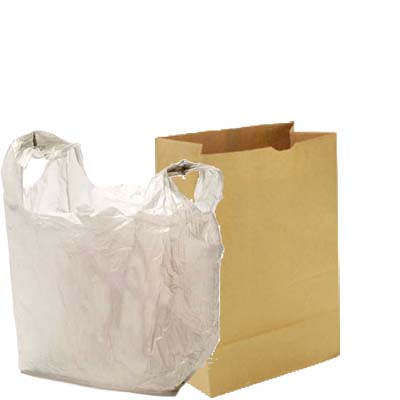What Type of Bag Should You Use at the Grocery Store to Minimize Environmental Impact?
When it comes to grocery shopping, one of the most common debates is whether to use paper bags, plastic bags, or reusable bags. While it seems like a small choice, it actually has a pretty big impact on the environment. Each type of bag—paper, plastic, and reusable—has its own pros and cons, and it’s essential to understand these to make an informed, eco-friendly decision.
1. Plastic Bags: Convenient but Harmful
Pros: Plastic bags are lightweight, waterproof, and incredibly convenient. They’re perfect for keeping your food dry, especially on rainy days. Plus, they’re super cheap for stores to produce, which is why they’re so common in many grocery stores.
Cons: Unfortunately, plastic bags are one of the worst offenders for the environment. They’re made from petroleum, a non-renewable resource (learn how to identify plastics here), and they don’t decompose easily. In fact, it can take hundreds of years for a plastic bag to break down in the environment. As they do degrade, they break into small pieces called microplastics, which can find their way into our oceans, harming marine life and entering the food chain.
The real problem with plastic bags is that they are typically used only once and then discarded. While they can be recycled with some extra effort, most people don’t bother, and many end up in landfills or, worse, floating around in the environment. In some places, plastic bags end up being a major problem for wildlife, who can ingest or become entangled in them.
2. Paper Bags: Better Than Plastic, But Still Not Perfect
Pros: Paper bags are often seen as the more eco-friendly alternative to plastic. They’re biodegradable, meaning they break down in a landfill or when exposed to natural elements. Paper bags are also made from renewable resources—trees—and are often recycled after use. If you do need to throw them away, they tend to have less of a lasting impact than plastic bags.
Cons: While paper bags are better than plastic in some ways, they aren’t without their environmental drawbacks. Trees need to be cut down to make paper bags, which contributes to deforestation. Even though paper bags are biodegradable, they still require energy and water to produce, which can contribute to pollution and carbon emissions.
Additionally, paper bags are often heavier than plastic, meaning transporting them uses more energy. They also take up more space in landfills if not properly recycled, which can be a problem if recycling facilities don’t accept them.
3. Reusable Bags: The Eco-Friendly Winner
Pros: Reusable bags are by far the best option when it comes to minimizing your environmental impact. Made from materials like cotton, jute, or recycled plastic, they’re designed to last for hundreds of uses. By using a reusable bag, you’re essentially eliminating the need for single-use plastic or paper bags altogether. This means fewer bags end up in landfills, and fewer resources are used to make new bags.
The environmental benefits are clear: reusable bags are typically made with far less energy and resources than single-use bags. Cotton bags, for example, are made from a renewable resource, and many reusable bags are made from recycled materials, which further reduces their environmental footprint.
Cons: While reusable bags are an obvious winner in terms of sustainability, they do have some drawbacks. For one, they’re only environmentally friendly if used multiple times. If you use a reusable bag just once or twice before discarding it, its environmental benefit is negated. Additionally, reusable bags made from cotton require a lot of water to produce, and growing the cotton itself involves pesticides and other chemicals, which can harm the environment if not done sustainably.
Another downside is the potential for contamination. If you’re using a reusable bag for groceries, it’s important to clean it regularly to avoid bacteria build-up, especially if you carry raw meats or produce. Neglecting to wash them could lead to hygiene problems.
What’s the Bottom Line?
So, what’s the best choice when it comes to minimizing environmental impact? Reusable bags are generally the most eco-friendly option—provided you use them frequently and wash them responsibly. If you don’t already have one, it’s definitely worth investing in a few durable, washable reusable bags made from sustainable materials.
Paper bags are better than plastic, but they still have a significant environmental footprint, especially when used only once. Plastic bags should be avoided if possible because they contribute to long-term environmental damage, and they don’t break down easily.
In the end, the key is to reduce the number of bags you use, choose reusable bags when you can, and recycle when appropriate. A little conscious effort can go a long way in reducing your environmental impact, one grocery trip at a time.

